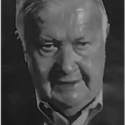The Journey 102. Dr. Ian Waitt: Managers, Please, Do No Harm!
Publisher Kris Millegan speaks with Dr. Ian Waitt about the history of management, the pioneer Sir Ambrose Crowley, Ian’s upcoming book, MANAGEMENT FOUNDATIONS, and the grain industry’s chaos (and the hunger that might ensue).

Ian has provided trade, business, education and political consultancy to clients around the world, including governments in Asia, Africa and Europe, along with companies in the UK and North America. He is also the founder, director & chairman of the Institute for Business Development Holdings Ltd. and a writer, lecturer, and research historian.
Kris: Ian [saw that] the world isn’t in the best position that it could be. And part of it is because of the way that business operates. Ian looked at the history of business, because it brings a lot to the table. There is a moral way. There is a correct way to do business that treats, first, the earth nice and then treats all of our brothers and sisters here in the correct way.
[His upcoming book, MANAGEMENT FOUNDATIONS] is a masterful history lesson, showing us where a lot of our best business practices come from.
Ian: It’s about looking at issues and problems, and, in the proper sense, being radical. That’s a word that gets dreadfully misused. It’s from the Latin, “radix.” And it means “going to the root.” It’s like taking a weed out of your lawn. [You’ve got to pull up the root.] It’s about decent cultivation. It isn’t easy. Greed, for example, is a plant which grows in the wrong place far too often.
Kris: Tell us about [Ambrose] Crowley.
Ian: He created the world’s first factory system, where he employed over a thousand people at the start of the 18th Century. Now you didn’t get major factory enterprises until late in the 19th Century. The early 19th Century factories only employed 200 to 250 people.
[When Crowley did it] there was no guidance of how you run them. It was completely virgin territory. And he devised a management system. And he called it THE LAW BOOK OF THE CROWLEY IRONWORKS.
It gave a complete disciplinary system. It gave a welfare system. And that was what was remarkable. He realized that you have to look after your workers. You didn’t exploit your people. You gave them firm rules to live. Sometimes the rules were remarkably firm. For example, if you made a joke while you were at work you could be fined a penny. You were meant to concentrate on what you were doing.
He set up a Church of England chaplaincy inside his factory. So there was a chaplain present all the time, who was also a school master, because he also educated the kids at the same time.
Kris: There’s this history in England where the history of education and the history of industrialization and the history of management, they all kind of intertwine. Sometimes for the better and sometimes for the worse.
Ian: True. Because Crowley’s example was forgotten. The practices largely were lost and had to be rediscovered and reinvented.
In the United States, you know the issues between management and labor. [And] if you think of the difference between how the Germans manage their employees, how the Japanese manage, how you guys [Americans] do it, how the Brits do it – because we had a lot of industrial trouble – the Japanese and the Germans are closer to an efficient form of management with contented workers than either you are in the States or we are in U.K.
[They’re more effective] because manager and worker have got the same belief. The belief in the company. The belief that what the company is doing is good. They share the same ethics of making a good product, selling it well, [and] giving value for money.
The Germans call it co-determinism, meaning the worker and the employer are of the same mind. You’ve got the worker sitting on the board and contributing to decisions, and the worker knowing what he’s talking about, being part of it.
Kris: Here [in America], one of the basic tenets is “to make money.”
Ian: Peter Drucker, a management guru of the forties and fifties and sixties, said that the purpose of a business was to create customers, which is very different from saying what Milton Friedman and the Chicago school said, which was that a business existed for the benefit of its shareholders and what was of prime importance was shareholder value. Now that, to my mind, was and always has been complete nonsense.
The first [large-scale] industries are pretty predictable. The arms business. That’s always been a business of scale. The earliest big manufacturers were the people who made shields. Basic defense. Right? [In Roman times] tax collectors, so the state could do what it could do. Another one is the grain industry. There’s huge business in feeding people. Pottery. Glass is quite a big business.
Marble carving. All the great big marble pillars, would you believe, they were mass manufactured and would be laid up in warehouses for years. Sometimes decades. Those were the businesses of scale.
Kris: In your [upcoming] MANAGEMENT FOUNDATIONS, you want to reform business. You want business to work differently. Why?
Ian: Management is full of some dreadful nonsense. The MBA and business studies are two of the largest areas of education. That’s what the majority of students study. There is a complete fallacy that management is a profession. It’s not a profession. It’s an occupation.
Professionals are people who are accountable to their peers and to the public because they’re regulated by professional bodies. Doctors. Nurses. Lawyers. Dentists. These are true professions. If your lawyer gives you bad advice and you suffer, you can maybe get him disbarred. If your doctor mal-treats you, you can get him disbarred.
Professions began with a semi-mythical Greek figure called Hippocrates, the author of the Hippocratic Oath. His first principal was, “Do no harm.” Go and be a doctor but, number one, do no harm. I would say that has to be the first principle of management. Whatever it is you’re managing, do no harm. If you apply that to the whole of the occupation, you begin to change the world quite significantly.
If you can make managers properly accountable to a professional body with a professional and workable code of ethics … you can create the system whereby you can stop this dreadful managerial greed that you see in the CEOs of companies in the States and in UK that [is] just outrageous to the Japanese [and the Germans] … the astronomic salaries and appalling behavior of some of our CEOs.










